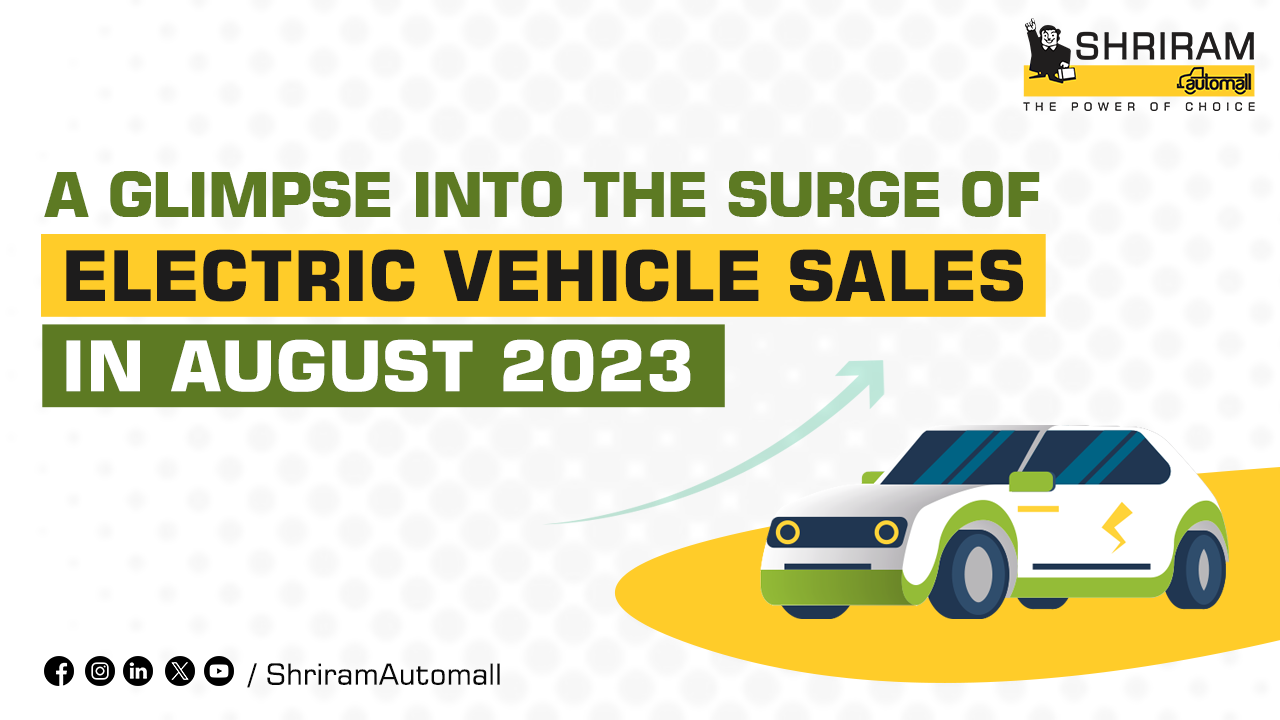A Glimpse into the Surge of Electric Car Sales in August 2023

The evolution towards electric mobility on four wheels has become increasingly evident on our roads, with green-plated SUVs, sedans, and hatchbacks becoming a common sight. More and more passenger vehicle enthusiasts are choosing the cost-effective embrace of electric vehicles, despite their higher initial price compared to conventional petrol or diesel counterparts.
This noteworthy shift in consumer preference is substantiated by the robust retail sales figures. According to data from Vahan, a total of 53,206 electric passenger vehicles (ePVs) were sold in the first eight months of CY2023, marking an impressive 132% year-on-year growth compared to the 22,951 units sold during the same period in 2022. Remarkably, this cumulative figure has already surpassed the entirety of CY2022, which saw sales of 38,215 units.
A deeper dive into the data table above underscores the consistent demand throughout the year thus far. Although the closing month of FY2023 in March 2023 witnessed the highest sales at 8,842 units, subsequent months, namely May (7,714 units), June (7,953 units), and July (7,708 units), have all maintained sales in the 7,500-unit range. While August recorded a slight dip to 6,750 units, the ongoing festive season in September is expected to reinvigorate ePV sales. Considering the prevailing sales momentum, this segment is poised to reach new heights, potentially surpassing the 85,000-unit milestone for the full year.
Company-wise Sales
Tata Motors, the front-runner in the electric PV market, boasts the largest portfolio, including the Nexon EV, Tigor EV, Tiago EV, and the Xpres-T (targeted at fleet buyers). The company has successfully sold 39,699 units, commanding a substantial 74.61% market share. Notably, Tata Motors' market share, which previously exceeded 80%, has gradually adjusted to accommodate the expanding EV market, offering consumers a broader spectrum of choices from competitors.
In the second position among ePV OEMs is MG Motor India, having delivered 5,663 units comprising the ZS EV and Comet EV. This achievement secures MG Motor India a noteworthy 10% market share, reflecting its remarkable performance in the first eight months of 2023.
Mahindra & Mahindra takes the third spot with 2,355 units, having gained traction with the launch of the all-electric XUV400, positioned as a direct rival to Tata Nexon EV, in January. The company, known for the eVerito sedan, currently commands a 4.42% EV market share.
Intriguingly, PCA Automobiles India (Citroen India), a recent entrant in the EV market, has surged ahead of BYD India. The Citroen eC3, the electric variant of the C3 hatchback, has accumulated 1,437 units in sales within six months since its launch in late February, priced at Rs 11.50 lakh. This achievement bestows PCA India with an EV market share of 2.70%, slightly edging past BYD India's 2.60%. This accomplishment signifies a growing demand for e-hatchbacks in the Indian market.
BYD India, recognized for selling the Atto 3 SUV and e6 MPV, presently holds the fifth position, with total sales reaching 1,385 units and a market share of 2.60 percent.
The collaboration of Korean siblings, Hyundai Motor India and Kia India, has resulted in the sale of 1,177 units. While Hyundai, offering the Kona and Ioniq 5, recorded sales of 896 units, the Kia EV6 garnered interest from 281 buyers.
According to Vahan data, luxury car manufacturers in India accounted for 1,336 units, equivalent to 2.51% of total ePV sales in January-August 2023. BMW India leads the luxury segment with 653 units, followed by Volvo Auto India (315), Mercedes-Benz (255), Audi (65), Porsche (39), and Jaguar Land Rover (9).
Conclusion
In conclusion, the surge in electric car sales during August 2023 signifies a promising trajectory for the electric vehicle market in India. Consumers' growing affinity for e-mobility and the expansion of EV portfolios by manufacturers indicate a positive outlook for the industry. The festive season, along with a broader range of electric vehicle options, is expected to drive this segment to new heights, emphasizing the shift towards sustainable and eco-friendly mobility solutions.
Stay Tuned with SAMIL for more Updates

 Download Our App
Download Our App



